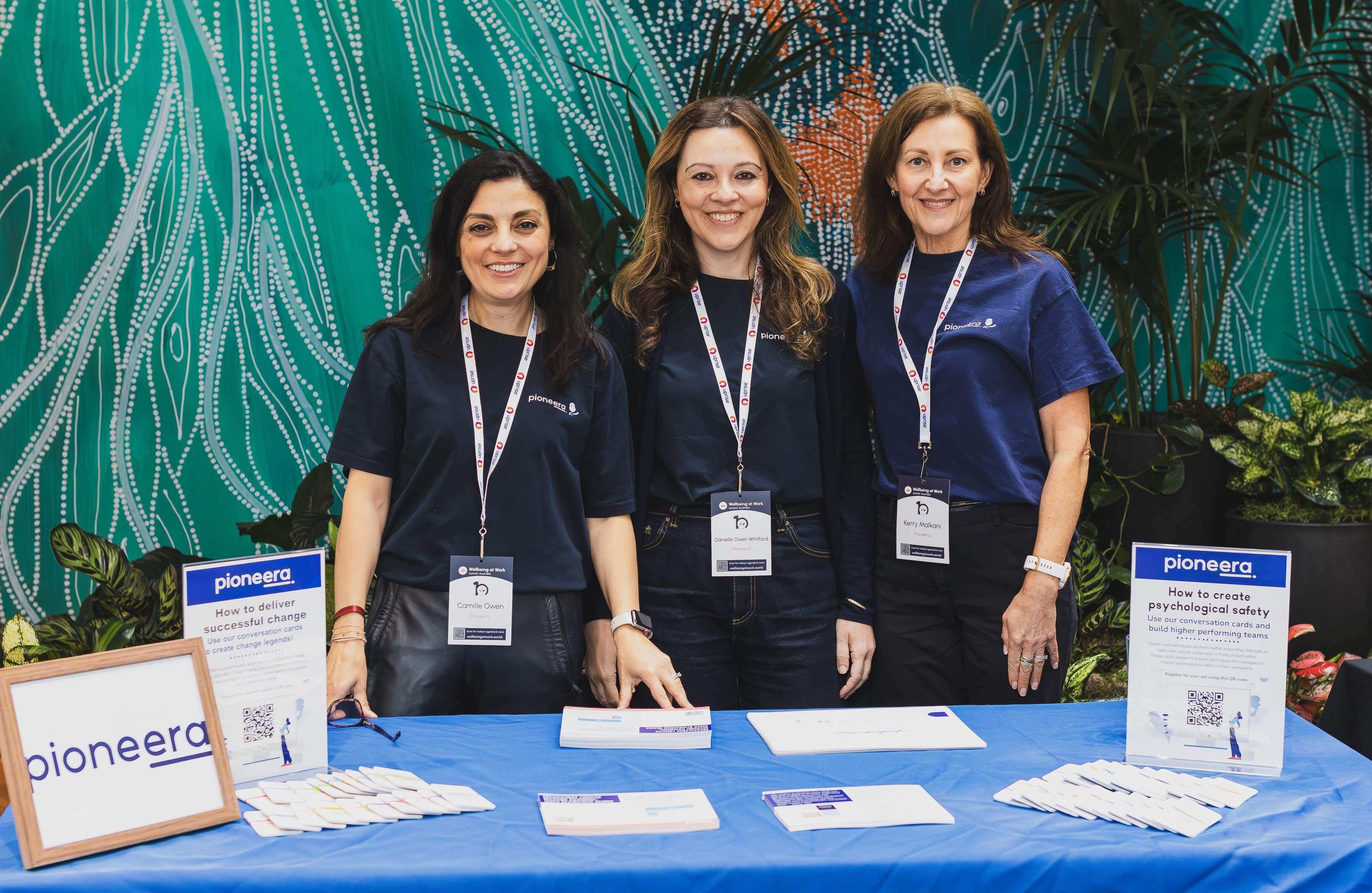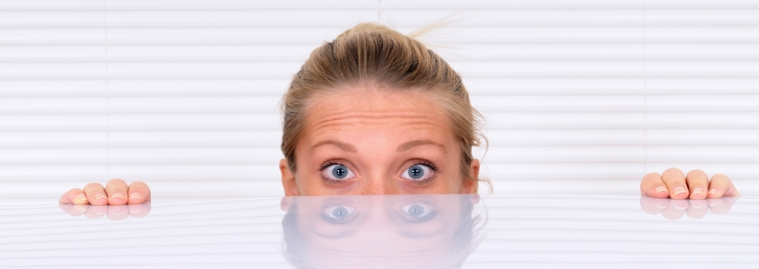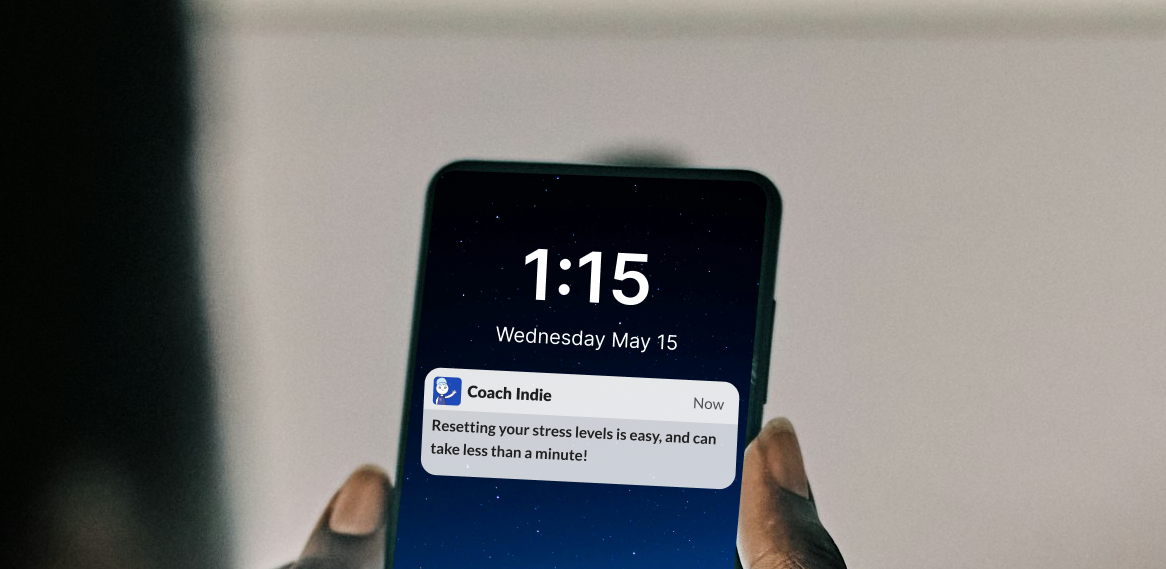Covid has meant many of us are working from home in close quarters with family, simply doing the best we can. It was an overnight shift - we couldn’t control or plan for it, and it’s causing many sleepless nights.
The link between stress and sleep is nothing new. Studies have long found direct links between insomnia and stressful work environments, and stress from home and family life.
“It’s OK, I’ll sleep tomorrow night…” Sound familiar?
Sleep deprivation has broader, more serious implications than dark circles and a bad mood. It can lead to a number of mental and physical health issues including chronic stress, depression, heart disease and diabetes. A lack of sleep actually prevents the brain from making new memories, leaving you feeling scatterbrained and impacting your ability to make effective decisions.
Sleep is one of the best ingredients for good physical and mental health. It’s always important, but has become even more essential when maintaining strong mental health during Covid-19.
If you’re having trouble sleeping right now, rest assured, you’re not alone. It’s the brain’s fear response and quite normal during times of uncertainty. But it’s not sustainable. Our tips below can help.
1. Keep your bed for sleep
For a restful sleep, it’s important to create an association in your mind between your bed and sleep. That means no working on the bed, or late night binge-watching from your laptop or phone while under the covers. Set your room up so it’s restful and not full of distractions, like a TV!
If you’re struggling to fall asleep, don’t spend any more than 20 minutes tossing and turning. Get up and do something relaxing in low light like reading a book or meditating. Head back to bed when you’re feeling sleepy.
2. Eat a healthy diet
A healthy diet is great for helping you sleep. Limit your consumption of caffeine and alcohol later in the day. Avoid eating spicy food before bed, as lying down after a spice-laden meal can lead to heartburn and a troubled sleep (sometimes even some strange dreams).
Some healthy sleep foods to include in your diet are almonds, warm milk, kiwi fruit, chamomile tea, walnuts, fish, and lettuce. Stay hydrated and be sure to finish eating 2-3 hours before bedtime.
3. Exercise
As well as reducing stress, regular exercise can help you fall asleep faster and improve sleep quality. However, working out too close to bedtime can interfere with sleep, and too late in the day leaves you too energised, delaying your transition to sleep.
Go for a jog first thing in the morning or do some exercise during the day. Make exercise a part of your daily routine to boost your chances of a restful sleep. Even a 15 min walk can help.
4. Avoid screen time before bed
It’s so tempting to check news updates at all hours. Even more tempting to check your social media feed. But the blue light emitted from digital devices can mess with the your internal body clock, stopping your body from knowing it’s time to sleep.
A non-tech wind down is the best way to help ease stress and prepare for sleep. Try reading a book or journaling like our ancestors did - with pen and paper.
5. Embrace your stress
Studies show that it’s not the severity or type of stress that dictates how it affects us. It’s our mind-set and how we choose to react that matters most. So when you’re feeling stressed, ask yourself if your reaction is helping or hindering, and if it’s in line with your personal values.
There’s so much in the world that we can’t control. But we can control how we react. Channelling your stress energy into positive outcomes can help you reduce stress and, in turn, have a better night’s sleep.
Check out: How embracing stress can actually improve your wellbeing
6. Try relaxation techniques
Box breathing works a treat when you’re lying in the dark with a racing mind. It’s simple and effective, and can be used anywhere, anytime (not just for sleep) to help calm your mind in a matter of minutes. Our founder, Danielle, does this a lot.
Breathe in for 4 sec, hold for 4 sec, out for 4 sec, hold for 4 sec, repeat as necessary.
Other techniques such as meditation and mindful body scan can help calm the body and mind for a restful sleep. There’s a myriad of meditation apps available with audio to guide you.
7. Stick to a routine
Given the circumstances, a consistent routine can be difficult, but not impossible. It can be quite effective in adding some predictability during uncertain times.
Small things like waking up at the same time each day, doing some exercise, eating a healthy breakfast and starting work at a set time can really help kickstart your day. Eating dinner and going to bed at the same time each night can also condition your mind and body to know what to expect.
The more you stick to a routine, the more effective it can be for helping you get a good night’s sleep.
8. Connect with others
Isolation is hard. Lack of contact with friends and family can cause anxiety and lead to depression. This stress can certainly affect your sleep. Stay connected by regularly calling friends and family. Schedule video coffee catch ups in your calendar to remind you to take the time to be with others.
If you’re a leader, hold regular stand-ups via video call to check in with your team and see how they're going. What’s important here is acknowledging the situation and that it’s ok to not be ok. This new normal is not normal. But what is normal? Working together to safely stave off the isolation blues can help you and your team stay healthy and hopefully, enjoy the benefits of a restful sleep.
Final thoughts
Stress makes it hard to sleep. And sleep is needed to help reduce stress. It’s a vicious cycle that feels like there’s no end! But we must try. Because the alternative is worse.
As important as sleep is, you cannot force it. Instead, aim to create conditions conducive to a good night’s sleep. Explore techniques and adopt habits to allow you to be relaxed and quiet, and sleep will come to you.
Help your sleep by understanding and measuring your stress in real-time - with Indie by Pioneera.






